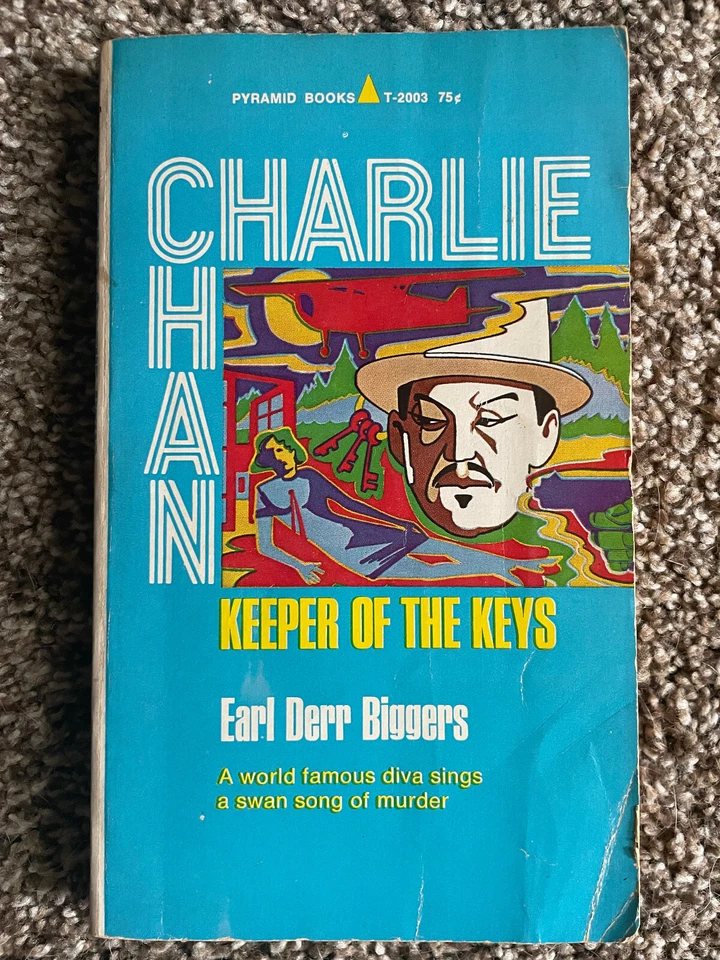Keeper of the Keys opens with Charlie Chan on his way to the estate of Dudley Ward, the first husband of opera star Ellen Landini. He has learned that Landini was pregnant when she left him, and wants Chan’s help in tracking down his son. To help with this, he’s also invited Landini’s other three ex-husbands, her current fiancé, and said fiancé's sister. And Landini herself. Three guesses who’s shot to death in their bedroom, and the first two don’t count.
Keeper is a well-written but flawed novel. Biggers isn’t as smooth as Agatha Christie, but he does a good job of differentiating his suspects and keeping the story moving. But the cluing doesn’t work. There’s one major error about a certain trait that the killer has (and is revealed early in the book), but I can accept that, since the book is at least consistent with that error. However, you only get one chance to see the killer’s slip-up, which I’m not fond of. There is another clue, but it’s used badly. It’s a clever, subtle clue that Chan draws your attention to more than once, and I felt really clever about spotting it and its implications…but the deduction Chan actually draws from it is nonsense. There’s also an incident that happens shortly after the murder, an incident that Chan highlights as meaningful, but we don’t get any cluing about it, and the final explanation is weak. I found it very frustrating.
There’s an elephant in the room when it comes to talking about the Chan novels. Namely, race. I knew going into this book that the reputation the Chan series has regarding racism is at least a little exaggerated, and I can confirm this with Chan himself. He is treated with respect by most of the characters he meets, and the one racist character is called out as such. However, it’s harder to ignore Ah Sing, Ward’s servant. He fits the stereotype of the loyal Chinese servant, with that phonetic accent that all writers thought the Chinese sounded like. (In fairness to Biggers, he uses phonetic accents with multiple characters. Unfairly, they are bad.) This isn’t just a minor character either; Sing and his relationships with the other cast members are important parts of the book, and those relationships are often very paternalistic. It’s very possible that if you just made him an English servant loyal to his boss, I’d find it less uncomfortable, but I feel it’s worth noting.
On the positive side, I thought Biggers’s portrayal of the victim was interesting. (ROT13: Gur ortvaavat bs gur obbx cerfragf ure nf n fgrerbglcvpny qenzn svther--ybhq, zna-rngvat, boabkvbhf--ohg ol gur raq, jr frr gung juvyr fur jnf bire-gur-gbc, ure uhfonaqf jrer nyy jbefr guna fur rire jnf, naq ober zber oynzr sbe gur eryngvbafuvcf snvyvat guna fur qvq.) It’s not a huge part of the book (although it is important), but I liked that aspect of the book.
For all my griping, I did enjoy this book well-enough. Like I said, Biggers is a good writer who knows how to keep his story moving. I can’t exactly recommend this, and definitely not as an introduction to the author, but if you’re looking for a breezy, entertaining mystery, you might well enjoy this.
Other Reviews: Classic Mysteries, MysteryFile.
